Naturalis Leiden
Naturalis Leiden
The Naturalis Biodiversity Center in is a leading natural history museum and research institute established in 1820. Housed in a modern building designed by Neutelings Riedijk Architects, it combines contemporary and historic architecture. Naturalis showcases millions of specimens from around the world and serves as a major research hub studying life’s origins, evolution, and conservation. Through interactive exhibits and immersive experiences, it educates visitors about biodiversity, environmental challenges, and the importance of preserving nature.The Naturalis Biodiversity Center in Leiden, Netherlands, is a premier natural history museum and research institute renowned for its vast collections and cutting-edge scientific research. Established in 1820 and housed in a strikingly modern facility designed by Neutelings Riedijk Architects, Naturalis offers a comprehensive exploration of Earth's biodiversity.
Opening hours
Opening hours
- Tuesday to Sunday, 10:00 AM – 5:00 PM
How to get there
How to get there
Darwinweg 2, 2333 CR Leiden, Netherlands
Prices from
Prices from
From €18
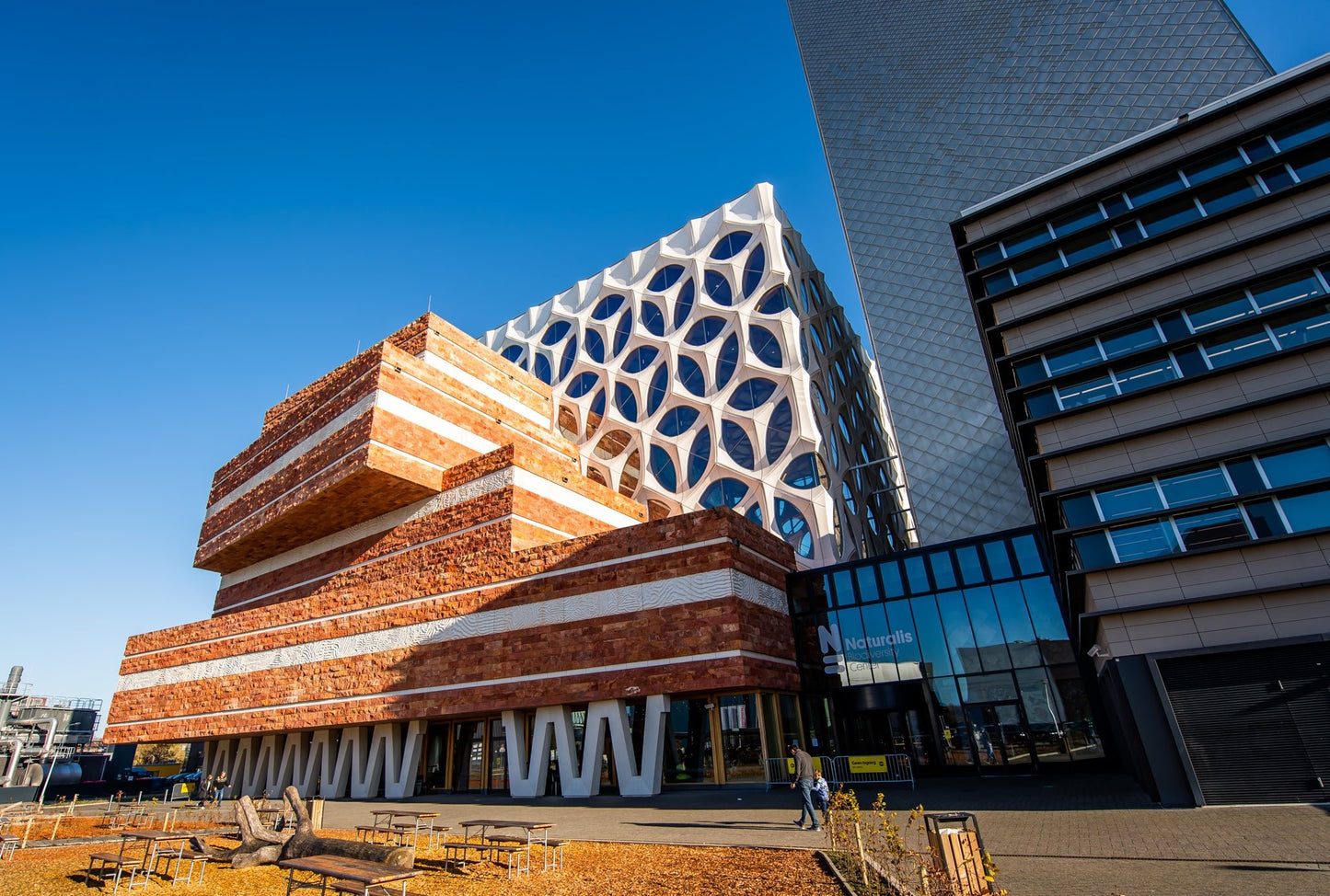
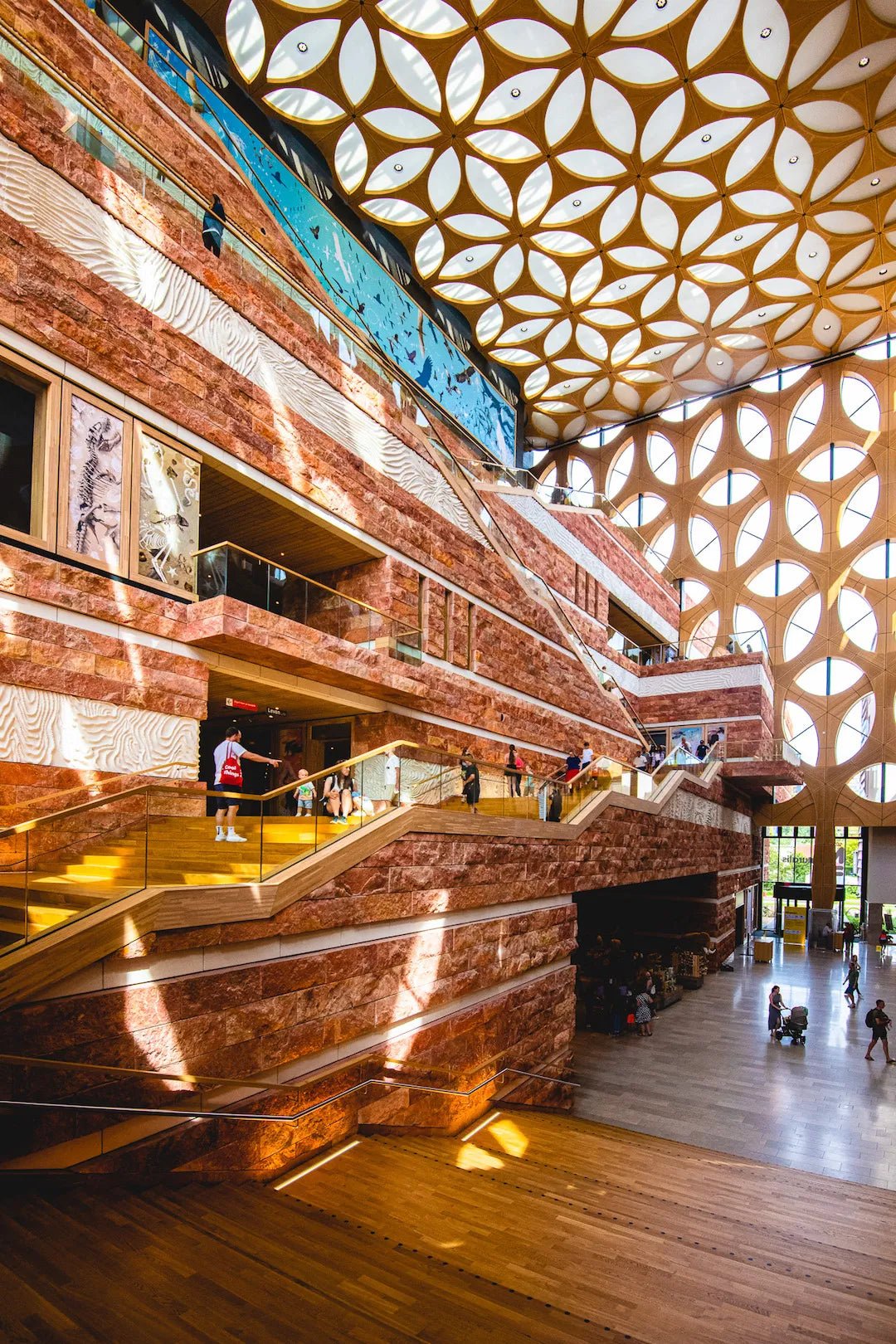
More details
The Naturalis Biodiversity Center is a premier natural history museum and research institute renowned for its vast collections and cutting-edge scientific research. Established in 1820 and housed in a strikingly modern facility designed by Neutelings Riedijk Architects, Naturalis offers a comprehensive exploration of Earth's biodiversity.
🎨 Artwork
The Naturalis Biodiversity Center seamlessly integrates art and science, offering visitors a rich tapestry of artistic expressions that complement its vast natural history collections. Here are some notable artworks featured within the museum:
- "Origins of Imagination" by Dominic Harris
- Botanical Illustrations from the Icones Collection
- "Lust for Life" by Giny Vos
- Wall Panels by Tord Boontje
These artworks at Naturalis Biodiversity Center not only embellish the museum's architecture but also deepen the connection between art, nature, and science, enriching the visitor's journey through the natural world.
🖼️ What can visitors learn?
Visitors to the Naturalis Biodiversity Center can learn about the vast diversity of life on Earth, from ancient fossils to modern species, understanding how ecosystems function and evolve over time. The museum offers insights into the origins, evolution, and preservation of biodiversity, highlighting the impact of environmental changes and human activity. Through interactive exhibits and immersive experiences, visitors gain awareness of the importance of conservation and the delicate balance of nature, fostering a deeper appreciation for the complexity and fragility of life on our planet.
🏛️ Architecture
The museum's design seamlessly integrates existing structures with new additions, centered around a monumental atrium adorned with a three-dimensional concrete lattice resembling interlocking molecules. This "glass crown" allows natural light to filter through, illuminating the space and enhancing its grandeur. The building features sustainable elements such as green roofs, solar panels, and energy-efficient climate control systems, reflecting the museum's commitment to environmental stewardship. Notably, fashion designer Iris van Herpen contributed 263 white concrete friezes to the façade, inspired by natural forms, adding an artistic dimension to the architectural design.
Some Highlights of Naturalis Leiden
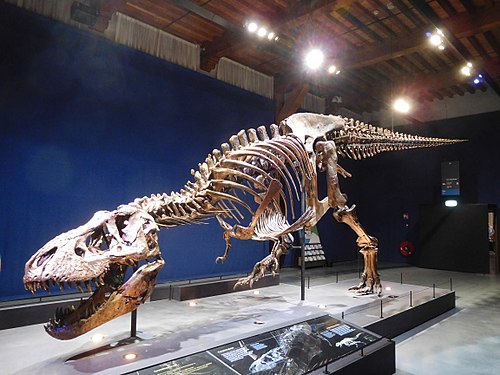
Meet Trix the T. rex
Trix is a Tyrannosaurus rex specimen excavated in 2013 in Montana, United States by a team of paleontologists from the Naturalis Biodiversity Center in Leiden, the Netherlands and Black Hills Institute of Geological Research in South Dakota. This Tyrannosaurus, over thirty years old – the oldest known Tyrannosaurus specimen – lived about 67 million years ago. It is considered to be the third most complete Tyrannosaurus found, with between 78% and 80% of its bone volume recovered. The specimen was named Trix after the former Queen Beatrix of the Netherlands. It is one of only two Tyrannosaurus specimens on permanent exhibit in mainland Europe.[1][2][3][4] The other one is a specimen named Tristan on exhibit at the Natural History Museum of Berlin.
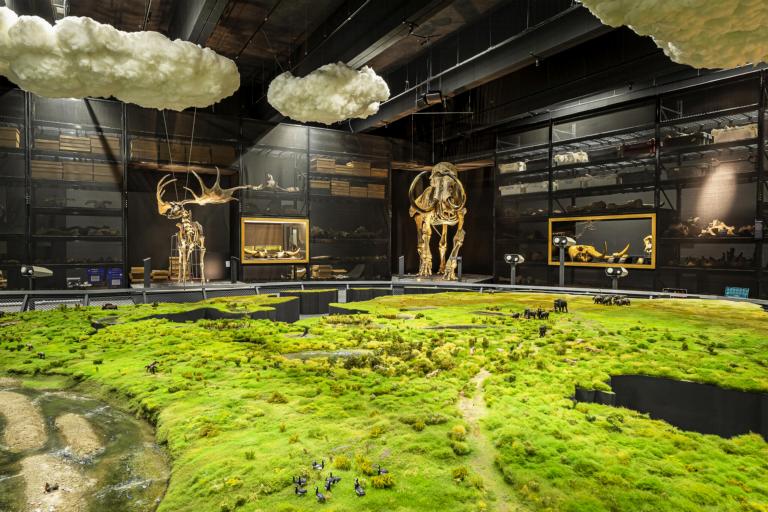
Ice Age Gallery: Explore Prehistoric Netherlands
The familiar Dutch landscape has been rendered unrecognizable and replaced by wild nature against a desolate prehistoric backdrop. Welcome to the Ice Age gallery.
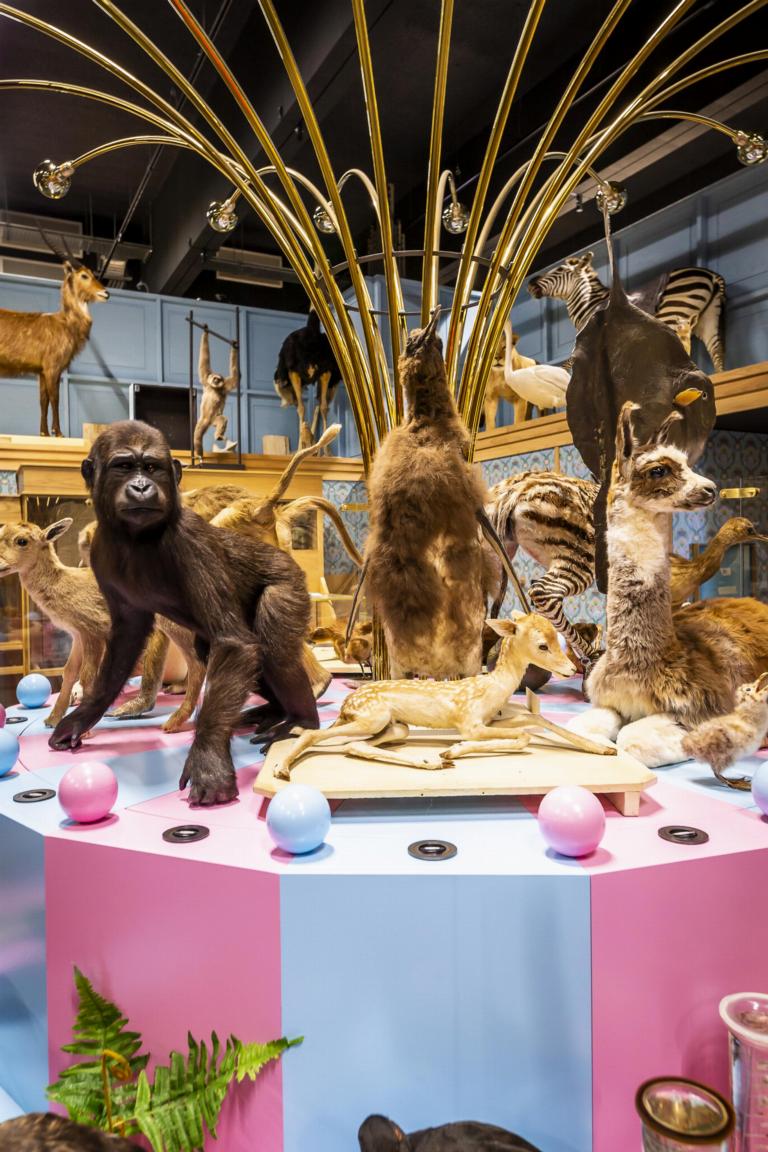
Seduction Gallery: The Science of Reproduction
Seduction zaal verleiding The Seduction gallery is all about procreation in nature. In a playful way, it illustrates the rituals of courting, coupling, and raising offspring.
Other Dutch Museums
-
Noordbrabants Museum Den Bosch
Regular price €0,00 EURRegular priceUnit price / per -
Van Gogh Museum Amsterdam
Regular price €0,00 EURRegular priceUnit price / per -
The Kröller-Müller Museum Otterlo
Regular price €0,00 EURRegular priceUnit price / per -
The Rijksmuseum Amsterdam
Regular price €0,00 EURRegular priceUnit price / per






